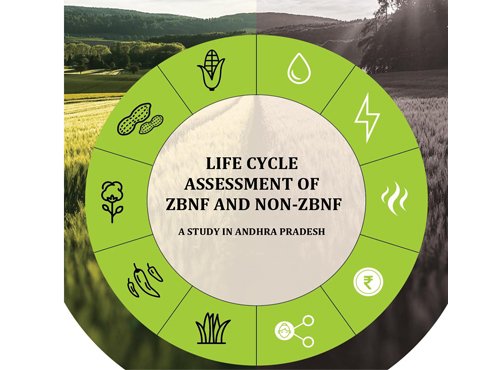AP aspires to become the first 100% natural farming state in the country. As part of a larger mission of alleviating rural poverty from agriculture and improving the quality of the ecosystem, the Government has decided to adopt ZBNF across the state. In 2016-17, the ZBNF programme was initiated in the state, with an aim to cover over six million farmers by 2024. This programme has reached 1.63 lakh farmers (5.04 lakh acres of area coverage) by 2017-18. The large-scale adoption of this practice could help the state and the nation achieve the SDGs, improve the nutritional value of products, maintain biodiversity, and reduce farmer suicides (Planning Department, 2015). Rythu Sadhikara Samastha (RySS)—a not-for-profit organisation owned by the Government of AP—has been set up to ensure the implementation of the ZBNF programme. Initial observations from the practice (in 2016-17) reveal that ZBNF farmers have seen a reduction in investment cost and increase in yield in certain instances. ZBNF farmers cultivating groundnuts and paddy had 23% and 6% more yields respectively than those practising non-ZBNF (Planning Department, 2015). However, this data was largely gathered from anecdotal evidence and there are no scientific studies at present to support these claims. Through this study, we aim to perform an evidence-based comparative assessment of ZBNF and
non-ZBNF practices. Read Full Report here…
Originally Published by CSTEP

